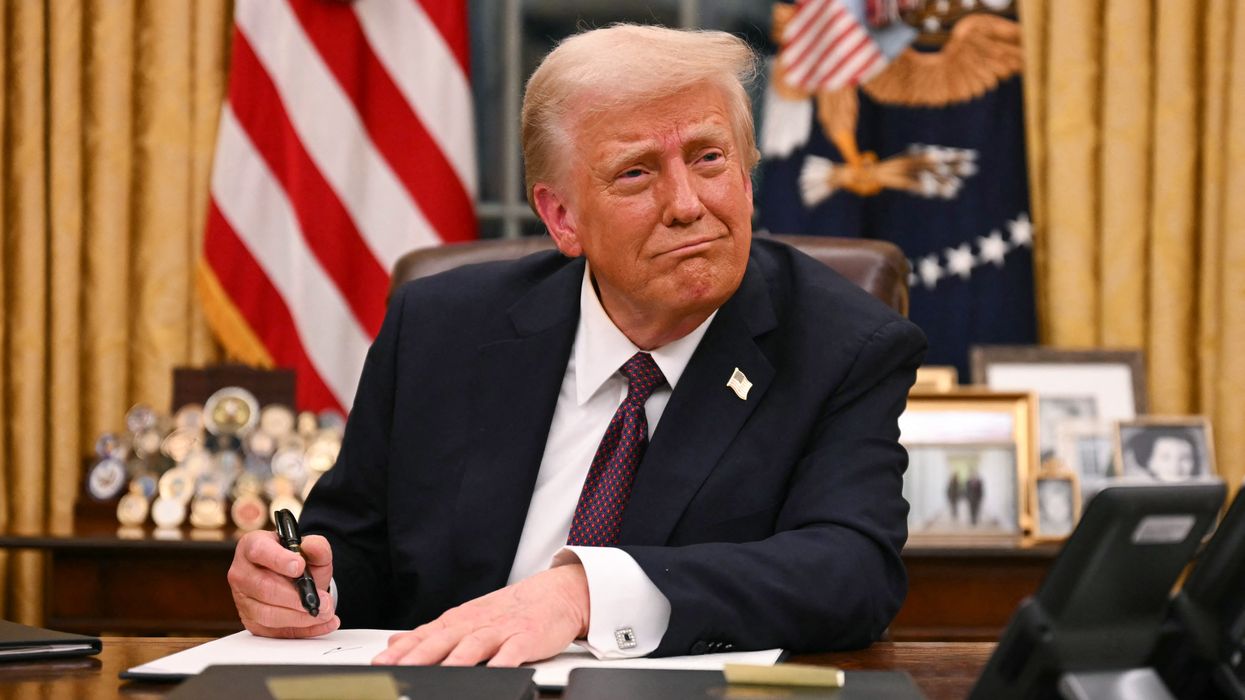US president Donald Trump has announced a 25 per cent tariff on imported cars and auto parts, escalating trade tensions with key partners.
The new duties take effect on 3 April and apply to foreign-made cars and light trucks, with additional levies on key auto parts set to follow within the month.
The move has drawn criticism from trading partners, with Japan’s prime minister Shigeru Ishiba saying Tokyo was “considering all kinds of countermeasures.”
Canada’s Mark Carney called the tariffs a “direct attack” on Canadian workers, while Brazil’s president Luiz Inácio Lula da Silva said his country “cannot stand still” in response.
Speaking from the Oval Office, Trump said, “What we’re going to be doing is a 25 per cent tariff on all cars that are not made in the United States.”
He warned that Canada and the European Union could face “large-scale tariffs, far larger than currently planned” if they worked together to harm the US economy.
Trump’s senior trade adviser Peter Navarro defended the move, saying foreign trade practices had turned the US manufacturing sector into a “lower wage assembly operation for foreign parts.” He criticised Germany and Japan for keeping higher-value manufacturing in their own countries.
The announcement has also drawn concerns domestically. Tesla CEO Elon Musk noted the tariffs would increase the cost of imported parts used in Tesla cars, saying, “The cost impact is not trivial.”
The Association of American Automakers urged the government to ensure the policy “avoids raising prices for consumers” while maintaining competitiveness.
Since starting his second term in January, Trump has imposed tariffs on imports from Canada, Mexico, and China, as well as a 25 per cent duty on steel and aluminium.
The latest auto tariffs will be applied in addition to existing duties. However, vehicles and parts that meet US-Mexico-Canada Agreement (USMCA) requirements may qualify for a lower rate or remain tariff-free.
Market impact and industry concerns
The new tariffs have caused uncertainty in financial markets, with shares of General Motors and Stellantis dropping more than three per cent ahead of Trump’s announcement.
Japanese carmakers also saw declines, with Nissan down 2.5 per cent, Honda losing 3.1 per cent, and Mitsubishi dropping 4.5 per cent. Mazda and Subaru both fell by around six per cent, while Hyundai slipped 2.7 per cent in South Korea.
Trump has defended the tariffs as a way to boost government revenue and strengthen the US auto industry. However, the move could affect trade relations with key partners, including Japan, South Korea, Canada, Mexico, and Germany.
“Imposing 25 per cent tariffs on imported cars will have a devastating impact on many of our close trading partners,” said Wendy Cutler, vice president at the Asia Society Policy Institute and a former US trade negotiator.
She also questioned the implications for existing US free-trade agreements.
Around 50 per cent of cars sold in the US are manufactured domestically, but more than half of those contain foreign-made parts, according to a White House official.
Among imported vehicles, about half come from Mexico and Canada, with Japan, South Korea, and Germany also major suppliers.
The American Automotive Policy Council, representing Ford, General Motors, and Stellantis, issued a statement saying it hoped the policy would boost US auto production but stressed that “it is critical that tariffs are implemented in a way that avoids raising prices for consumers.”
The Center for Automotive Research has previously estimated that US tariffs on metals and imported vehicles could raise car prices by thousands of dollars and impact jobs in the sector.
Further trade measures planned
Beyond the auto sector, Trump has indicated plans for additional tariffs on pharmaceuticals, semiconductors, and lumber.
The announcement comes ahead of what Trump has called “Liberation Day” on 2 April, when he plans to introduce further trade measures.
He said these duties would apply to all countries and be tailored to address what the US views as unfair trade practices.
While some of Trump’s recent tariffs have been imposed under emergency economic powers, the new auto tariffs are based on a 2019 government investigation, which concluded that excessive imports were weakening the US economy and could pose a national security risk.
(With inputs from agencies)





